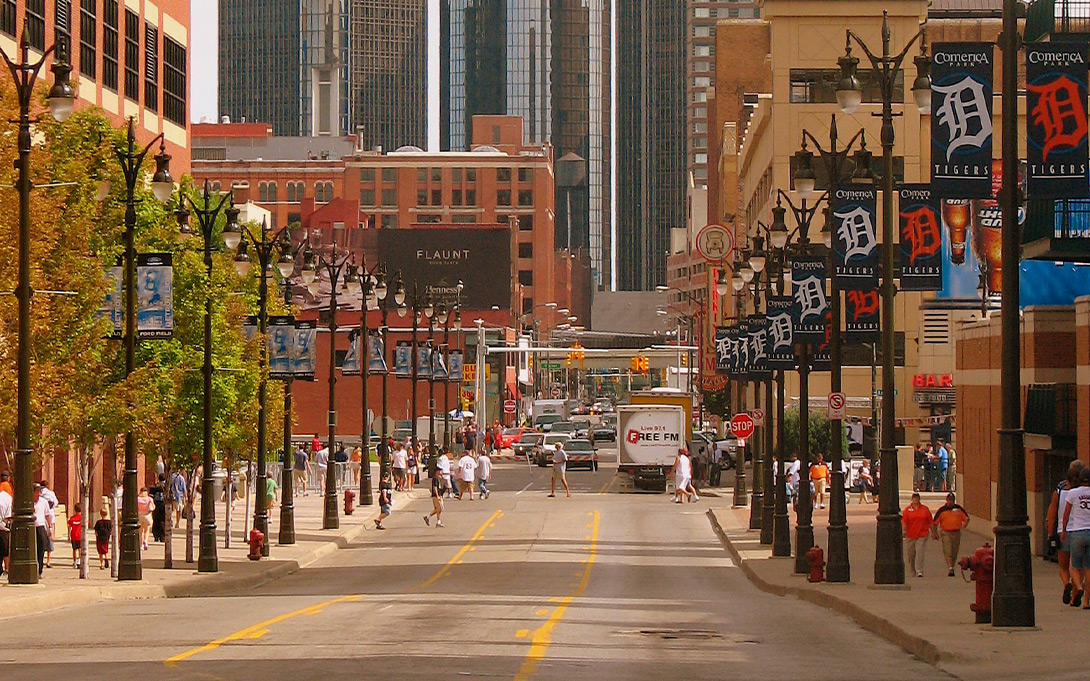
More Detroiters have returned to work amid the COVID-19 pandemic, but many families continue to have difficulty affording basic necessities and worry more hardship is ahead.
That's according to the latest representative survey of Detroiters from the University of Michigan's Detroit Metro Area Communities Study. The survey, which was open July 15-29, is the fourth rapid-response survey DMACS has fielded to measure the impact of the pandemic on Detroit residents.
Survey responses indicate Detroit's unemployment rate dropped from 48% in May and June to 38% in late July. One-quarter of Detroiters in the labor force say they remain unemployed due to layoffs and business closures resulting from the pandemic.
"The drop in unemployment is to be expected as more businesses reopen, but not everyone is benefitting equally as jobs return. The survey data show Black residents and people with low incomes and less education are more likely to remain out of work and more likely to have seen their hours cut if they are working," said Jeffrey Morenoff, one of the faculty research leads for DMACS, Ford School professor of public policy and sociology, and director of the Population Studies Center at U-M's Institute for Social Research.
Among those who remain out of work, one-quarter say they had to stop working because of family or personal obligations resulting from the pandemic. This is especially true of low-income workers, one-third of whom say they're not currently working due to family obligations, compared to just 4% of higher-income residents.
As Congress debates a next coronavirus relief bill and some current relief measures expire, need remains high in Detroit. Roughly 1 in 5 Detroiters say they are in financial trouble right now, according to the survey results, and 35% say they would be unable to cover an emergency $400 expense based on their current financial situation.
As a result, some Detroiters are struggling to afford basic necessities. More than half of residents (56%) are uncertain if they will be able to afford the food they need in the coming month and 43% say they have skipped or only partially paid one bill or more in the last month.
Some families report having already experienced service disruptions. In the last year, 1 in 8 households have had their phone or internet services shut off, and the majority of these shut-offs (73%) occurred during the pandemic, according to the survey.
"Families with kids are more likely to experience these service interruptions than other residents. Given how important internet service is for the ability to work from home and for remote learning, eliminating disparities in internet access and disruptions in service is critical to ensuring equal opportunity to learn and stay safe, especially as the new school year approaches," said Lydia Wileden, a doctoral candidate at U-M who analyzed the DMACS COVID-19 survey data.
Other key findings from the latest DMACS survey include:
-
22% of households with kids say they are very concerned about facing one or more material hardship—being evicted or foreclosed on, having a utility shut off or declaring bankruptcy—in the coming months, compared to 13% of households without kids.
-
Nearly three quarters (71%) of residents report receiving some form of public assistance or charity in the last month.
-
22% of Detroit residents say they currently receive unemployment benefits. Of those who have applied for benefits in the last month, 71% have received unemployment benefits and 20% are still waiting for a response regarding their application. The other 9% of unemployment applicants did not qualify.
-
71% of those who have lost their jobs say their place of employment remains temporarily closed, while 14% say their place of employment has closed permanently.
-
Despite the initial moratoria on evictions, foreclosures and utility shut-offs under Michigan's state of emergency, 11% of households say they have experienced a utility shut-off or housing hardship since the pandemic started.
-
28% of Detroit residents say they've been tested for COVID-19, which is up from 20% reported in the previous DMACS survey. This includes 30% of Black residents, 25% of white residents and 14% of Latino residents.
See the complete survey results.
This article was written by Michigan News.
